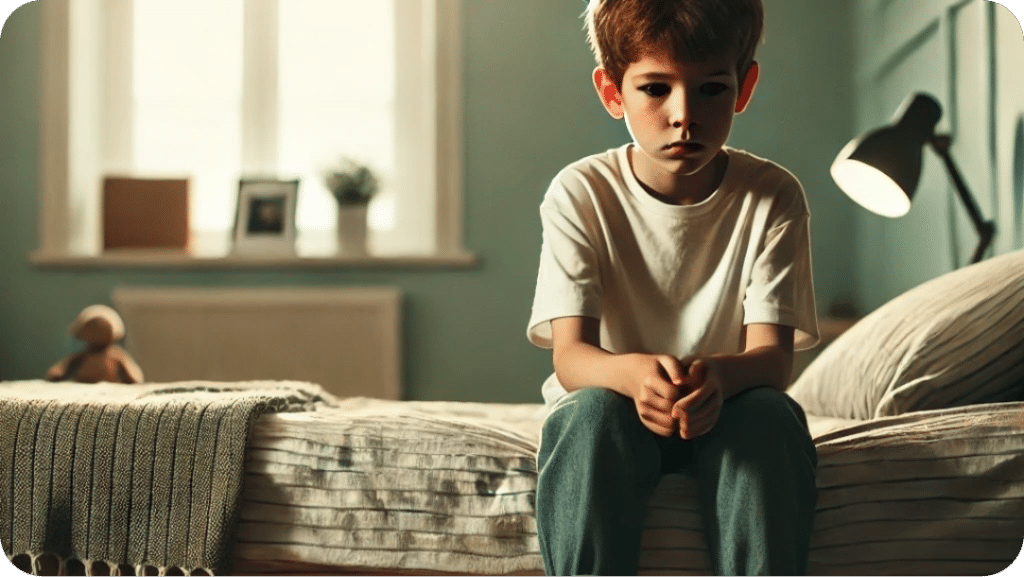Foster care is often associated with safety and a fresh start, but for the children who enter the system, it is also a journey of profound grief and loss. Separation from biological parents, siblings, and even previous foster placements can be deeply painful. No matter the circumstances that led to their removal, foster children experience loss in ways that can shape their emotional well-being for years to come. Understanding their grief and helping them process it is one of the most important roles of a foster parent or caregiver.
Understanding Grief & Loss in Foster Children
Children in foster care don’t just lose a home—they lose familiarity, security, relationships, and a sense of belonging. Their grief can manifest in different ways:
• Sadness and Depression – Some children withdraw emotionally, feeling hopeless about their future.
• Anger and Outbursts – They may express their pain through aggression, frustration, or defiance.
• Anxiety and Fear – Constant uncertainty can leave them feeling unsafe, making it hard to trust others.
• Guilt and Self-Blame – Many children believe they are at fault for being removed from their home.
• Detachment or Avoidance – Some children refuse to talk about their past, trying to block out the pain.
Each child’s experience is unique, and their grief may not always look like what we expect. Recognizing their pain is the first step in helping them heal.
How to Support Foster Children Through Grief & Loss
1. Acknowledge Their Feelings
Foster children need to know that it’s okay to grieve. Instead of trying to “fix” their sadness, validate their emotions:
• “I know you miss your mom. It’s okay to feel sad about that.”
• “You’ve had a lot of big changes lately. I’m here if you want to talk.”
• “It’s hard when we don’t know what will happen next. You are not alone.”
Encouraging open conversations about their feelings can help them process their loss in a healthy way.
2. Give Them Space to Remember
Some foster children may want to talk about their biological family or past placements, while others may avoid the topic. Respect their comfort level and find gentle ways to help them honor their past:
• Let them keep photos or special items from their previous home.
• Encourage them to write letters or journal about their memories.
• If appropriate, help them stay connected to siblings or safe family members.
Loss doesn’t mean forgetting—it means finding ways to hold onto love while moving forward.
3. Create a Safe and Stable Environment
A stable, predictable home can provide the security foster children need to work through their grief. Establishing consistent routines, setting clear expectations, and being reliable in your words and actions can help them feel safe.
Even small things—like always having dinner at the same time, reading a bedtime story, or keeping promises—can build trust and comfort.
4. Be Patient with Their Behavior
Grief can lead to challenging behaviors. A child who is acting out, shutting down, or pushing you away may not be misbehaving—they may be hurting. Instead of reacting with frustration, approach their behavior with compassion:
• Instead of: “Stop throwing things!”
• Try: “It seems like you’re really upset. Do you want to talk or take a break?”
Consistency, patience, and understanding will help them feel safe enough to express their grief in healthier ways.
5. Seek Professional Support When Needed
Some children may need additional help processing their loss. Therapy, grief counseling, or trauma-informed care can provide them with tools to navigate their emotions. As a foster parent, partnering with mental health professionals can give you valuable guidance in supporting the child in your care.
Final Thoughts: Healing Takes Time
Grief is a journey, and for foster children, it’s often a complicated one. They may grieve not only the people they’ve lost but also the life they once knew. As a foster parent, you have the privilege of walking alongside them in their healing process—offering safety, understanding, and unconditional support.
Even if you can’t take away their pain, you can remind them that they are not alone. You can be the steady presence they need to begin rebuilding trust and hope for the future.
Because every child deserves to know that, even in their grief, they are loved.


